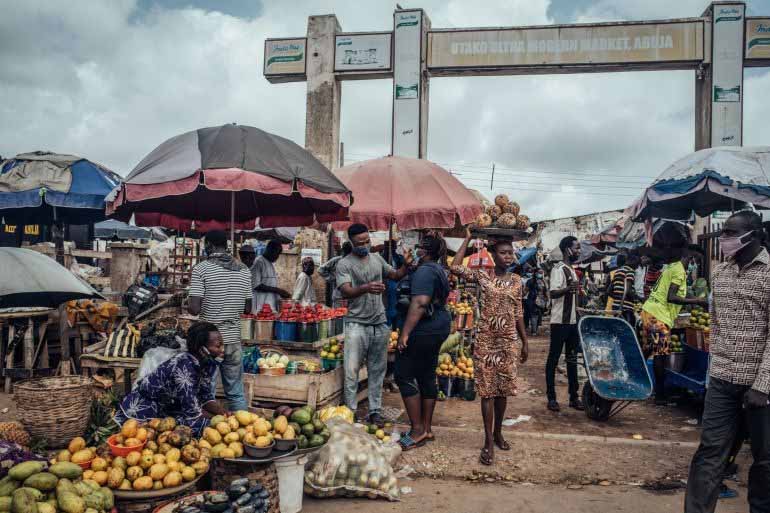THESE are not the best of times for Nigerians, thanks to constant struggles with stagnant earnings and dwindling fortunes now punctured by rising inflation.
Findings have shown that already, rising inflation, especially that of food, is putting pressure on the already stressed household incomes, leaving many homes with little savings and capacity to absorb new shocks. Food inflation has accelerated at the highest pace in 15 years, compounding the misery of many households.
Food inflation in Nigeria rose to 22.95 percent in March, caused by wide-ranging price increases across items such as cereals, yam, meat, fish and fruits
‘I can’t simply afford to give my children what they really need in terms of food,’ said Feyintola Bolaji, a mother of three in her 50s based in Nigeria’s southwestern city of Ibadan.
Soaring food costs have been in part blamed on a worsening conflict between farmers and herders in the nation’s agriculture belt that the Federal Government is struggling to quell.
The unrest, combined with the more than decade-long Boko Haram insurgency in the northeast, banditry in the northwest, a weakening currency and higher fuel prices have also contributed to rising food prices, according to SBM Intelligence, a Nigerian research firm.
The situation has also been exacerbated by import restrictions on certain staples, such as rice, that have remained in place despite President Muhamadu Buhari reopening Nigeria’s land borders in December following a 16-month shutdown in an attempt to end rampant smuggling.
Food prices will remain elevated until the security crisis, which has prevented farmers from returning to their land, is resolved, said SBM Intelligence.
Until then Nigerians, who already spend more than half their earnings on food, will have no option than to cut down. Just over 50 percent of all households reported reduced consumption between July and December last year due to the twin pressures of falling wages and rising food costs, according to the NBS.
With inflation already on the rise, the Director-General, Manufacturers Association of Nigeria (MAN), Segun Ajayi-Kadir, warned that 18.17 percent inflation rate is not healthy for the wellbeing of the people and the growth aspiration of the economy.



